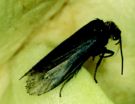Perceptual training improves vision of the elderly
The UC Riverside-Boston University study points to method of reversing age-related decline in vision
2010-11-23
(Press-News.org) RIVERSIDE, Calif. – Elderly adults can improve their vision with perceptual training, according to a study from the University of California, Riverside and Boston University that has implications for the health and mobility of senior citizens.
The study, "Perceptual learning, aging, and improved visual performance in early stages of visual processing," appears in the current online issue of the Journal of Vision. It was funded by a $3.5 million grant from the National Institute on Aging.
UCR researchers G. John Andersen, professor of psychology; Rui Ni, formerly a postdoctoral researcher; graduate student Jeffrey D. Bower; and Boston University psychology professor Takeo Watanabe conducted a series of experiments to determine whether repeated performance of certain visual tasks that are at the limits that one can see can improve the vision of adults older than 65.
"We found that with just two days of training, in one-hour sessions, with difficult stimuli resulted in older subjects seeing as well as younger college-age subjects," Andersen said. "The improvement was maintained for up to three months and the results were dependent on the location in the visual field where the stimuli were located – suggesting that the brain changed in early levels of visual cortex." The visual cortex is the part of the brain that processes visual information.
Age-related changes in vision – such as contrast sensitivity, dark adaptation, visual acuity, spatial vision, orientation, depth perception and motion perception – have been substantiated in numerous previous studies. This is the first study that demonstrates that perceptual training can be used to improve vision among the elderly in the earliest levels of visual processing.
The researchers used a texture discrimination test in which the participants were presented with stimuli consisting of a letter embedded in the center of a field of horizontally oriented lines. In addition to the letter, an array of peripherally located lines was oriented diagonally and formed either a vertical or horizontal object, always presented in the same quadrant. That was followed quickly with the display of a masking pattern. The task was to identify the central letter and the peripheral object.
Improvements in vision were not due to practice or familiarity with the task, the researchers determined. And, the improved performance from perceptual training was maintained for at least three months. These results show a high degree of brain plasticity among the elderly and suggest that this technique is useful for recovering from declines in vision due to normal aging.
"Given the clear impact of age-related declines in vision on driving, mobility, and falls, the present study suggests that perceptual learning may be a useful tool for improving the health and well-being of an older population," the researchers concluded.
After age 60 there is a steady increase in the incidence of falls and automobile crashes that are associated with changes in visual processing. This research indicates that behavioral interventions are likely to be very useful for improving safety and quality of life as we get older, Andersen said.
INFORMATION: END
ELSE PRESS RELEASES FROM THIS DATE:
2010-11-23
The same powerful drugs that have extended the lives of countless people with HIV come with a price – insulin resistance that can lead to diabetes and cardiovascular disease.
Now, researchers at Washington University School of Medicine in St. Louis have determined why that happens. Their research shows that HIV protease inhibitors directly interfere with the way blood sugar levels are controlled in the body. This leads to insulin resistance, a condition that occurs when the body produces enough insulin but doesn't use it properly.
This confirmation provides the potential ...
2010-11-23
U.S. academic institutions awarded 49,562 research doctorate degrees in 2009, the highest number ever reported by the National Science Foundation's Survey of Earned Doctorates (SED), and a 1.6 percent increase over 2008's total of 48,802.
The SED is an annual census of all individuals who receive a research doctorate from a U.S. academic institution in an academic year, which is July 1 through June 30 of the following year. The 2009 census covered individuals who earned doctorates in the academic year ending June 2009. NSF's Science Resources Statistics division compiled ...
2010-11-23
The following highlights summarize research papers that have been recently published in Geophysical Research Letters (GRL), Water Resources Research (WRR), and Journal of Geophysical Research - Earth Surface (JGR-F).
In this release:
Changing winds can influence amounts of carbon dioxide the ocean holds
Large methane release from ocean sediments during glacial periods?
Magnetic island observed at Earth's magnetopause
Understanding particle movement improves models of stream erosion and deposition
New method for assessing uncertainty in groundwater models
...
2010-11-23
WEST LAFAYETTE, Ind. - Purdue University scientists have found the last undiscovered gene responsible for the production of the amino acid phenylalanine, a discovery that could lead to processes to control the amino acid to boost plants' nutritional values and produce better biofuel feedstocks.
Natalia Dudareva, a distinguished professor of horticulture, and Hiroshi Maeda, a postdoctoral researcher in Dudareva's laboratory, determined that the gene is one of 10 responsible for phenylalanine production in plants. Understanding how the amino acid is produced could provide ...
2010-11-23
Biologists have long thought that interactions between plants and pollinating insects hasten evolutionary changes and promote biological diversity. However, new findings show that some interactions between plants and pollinators are less likely to increase diversity than previously thought, and in some instances, reduce it.
Findings, published in the Journal of Evolutionary Biology, show that local populations of one of the most distinctive plants in the Mojave Desert, the Joshua tree, are not as biologically diverse as would be expected. Joshua trees cannot produce seeds ...
2010-11-23
Upper-class people have more educational opportunities, greater financial security, and better job prospects than people from lower social classes, but that doesn't mean they're more skilled at everything. A new study published in Psychological Science, a journal of the Association for Psychological Science, finds surprisingly, that lower-class people are better at reading the emotions of others.
The researchers were inspired by observing that, for lower-class people, success depends more on how much they can rely on other individuals. For example, if you can't afford ...
2010-11-23
Current state-of-the-art global climate models predict substantial warming in response to increases in greenhouse gases such as carbon dioxide. The models, though, disagree widely in the magnitude of the warming we can expect. The disagreement among models is mainly due to the different representation of clouds. Some models predict that global mean cloud cover will increase in a warmer climate and the increased reflection of solar radiation will limit the predicted global warming. Other models predict reduced cloudiness and magnified warming. In a paper that has just appeared ...
2010-11-23
Astronomers find cosmic dust annoying when it blocks their view of the heavens, but without it the universe would be devoid of stars. Cosmic dust is the indispensable ingredient for making stars and for understanding how primordial diffuse gas clouds assemble themselves into full-blown galaxies.
"Formation of galaxies is one of the biggest remaining questions in astrophysics," said Andrey Kravtsov, associate professor in astronomy & astrophysics at the University of Chicago.
Astrophysicists are moving closer to answering that question, thanks to a combination of new ...
2010-11-23
Using hyperthermia, Virginia Tech engineering researchers and a colleague from India unveiled a new method to target and destroy cancerous cells. The research was presented at the 63rd annual meeting of the American Physical Society Nov. 23 in Long Beach, Calif.
The cancer treatment uses hyperthermia to elevate the temperature of tumor cells, while keeping the surrounding healthy tissue at a lower degree of body heat. The investigators used both in vitro and in vivo experiments to confirm their findings.
The collaborators are Monrudee Liangruksa, a Virginia Tech graduate ...
2010-11-23
St. Louis, MO, November 23, 2010 – Proper nutrition therapy is essential for the successful management of type 1 and type 2 diabetes and registered dietitians (RDs) can play a key role as part of the health care team. An article in the December issue of the Journal of the American Dietetic Association reviews the evidence and nutrition practice recommendations presented in the American Dietetic Association Nutrition Practice Guidelines for Type 1 and Type 2 Diabetes in Adults. This complete and systematic review presents 29 key nutrition practice guidelines in order to ...
LAST 30 PRESS RELEASES:
[Press-News.org] Perceptual training improves vision of the elderly
The UC Riverside-Boston University study points to method of reversing age-related decline in vision



